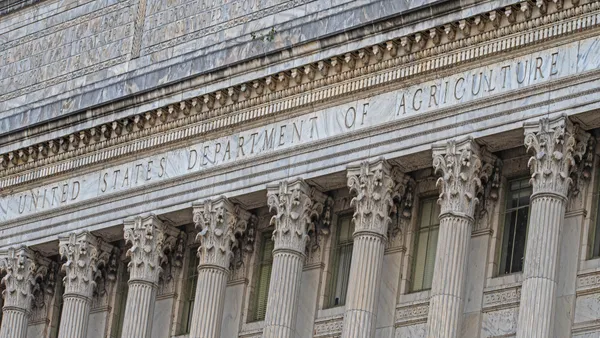Dive Brief:
- The Institute of Hospitality released a glossary of terms related to diversity, equity, inclusion and belonging last week, a first in the hospitality industry the nonprofit hopes will create a common vocabulary and increase a sense of belonging.
- In a statement, Institute of Hospitality CEO Robert Richardson called the glossary a “vital resource” for the industry, which defines terms like “ableism,” “intersectionality,” and “woke” and serves as the hospitality sector’s latest attempt to further DEI initiatives.
- The institute said the glossary is non-exhaustive but wanted to provide the sector, which is undertaking several initiatives to increase diversity in leadership roles, “a starting point” for conversations.
Dive Insight:
The glossary, released last week, gives the hospitality industry a crash course, defining some of the most pertinent terms in the current DEI lexicon and will stay updated.
Dorothea Jones, the Institute of Hospitality’s head of equity, diversity and inclusion, said the resource became a need due to the increasing breadth of DEI dialogue.
“It is vital to recognise the complexities and sensitivities of language and identity,” Jones said in the release. “The main goal is to provide a basic framework around this conversation.”
The resource defines “diversity,” “equity,” “inclusion” and “belonging” for the sector, as well as other commonly used terms like “ally,” “neurodiversity” and cis- and transgender. The organization defined belonging as “an accumulation of daily experiences that enables a person to feel safe and bring their full, unique self to work.”
The institute also includes additional context for industry professionals in entries on the Black Lives Matter movement, tokenism and “gender nonconforming or gender non-binary,” among others. The definitions include either historical significance of terms or, in the case of “tokenism,” what it could look like at a company.
The organization’s entry on “woke” includes the Oxford English Dictionary definition of the term — “a person being ‘alert to injustice in society, especially racism’” — before continuing, “It had been used by Black Americans since at least the mid-1940s. It is now being misappropriated and used as an attack against ‘cancel culture’.”
Recognizing that words can hold different meanings for different people due to things like identity and lived experiences, Jones said the industry needed a “common vocabulary to avoid misunderstandings and misinterpretations.”
The glossary’s creation was funded by the Savoy Educational Trust, a London-based charity that looks to advance hospitality industry training practices and gives organizations grants for educational projects.
The resource comes at a time where the industry is increasingly focused on topics like collaboration on DEI initiatives, and increasing underrepresentation in ownership diversity and addressing persisting underrepresentation of Black employees in leadership roles.
Earlier this year, the American Hotel & Lodging Association and the Hospitality Sales and Marketing Association International Americas division connected their nearly 40,000 combined members to collaborate on DEI events and initiatives. Meanwhile, Marriott International, Red Roof and Wyndham Hotels and Resorts have all undertaken efforts to increase ownership diversity at its portfolios in the past two years.
Ownership diversity has come up across the industry, as Black hoteliers make up just 2% of hotel owners, though Black employees make up 20% of the industry’s workforce, according to the National Association of Black Hotel Owners, Operators and Developers. In broader hospitality leadership, Black executives make up 2.2% of positions from the director to CEO levels, according to a recent report from Penn State’s School of Hospitality Management and the AHLA.
Galen Barrett, Wyndham’s vice president of strategic franchise initiatives, previously told Hotel Dive it’s important for the industry to continue to build the effort “to bring these topics to the forefront.”
“I think that DEI is important and not just in the hospitality industry,” Barrett said. “There are conversations that should be happening irrespective [of industry].”












